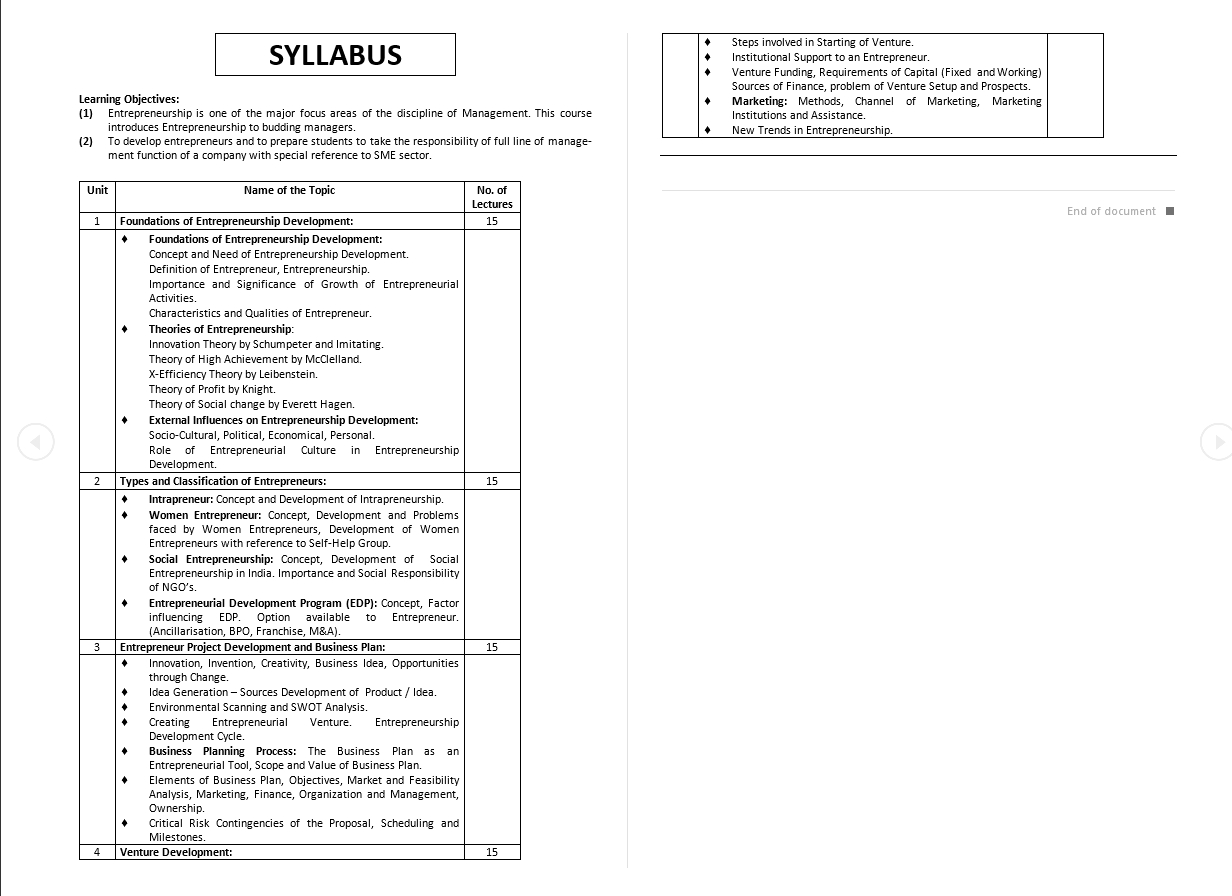Business Planning and Entrepreneurship Management
₹180.00
SYBMS — SEMESTER – III
Author: Romeo S. Mascarenhas
THIRD REVISED EDITION
Description
SYLLABUS
(1) Foundations of Entrepreneurship Development:
- Foundations of Entrepreneurship Development: Concept and Need of Entrepreneurship Development, Definition of Entrepreneur, Entrepreneurship, Importance and Significance of Growth of Entrepreneurial Activities, Characteristics and Qualities of Entrepreneur.
- Theories of Entrepreneurship: Innovation Theory by Schumpeter and Imitating, Theory of High Achievement by McClelland, X-Efficiency Theory by Leibenstein, Theory of Profit by Knight, Theory of Social change by Everett Hagen.
- External Influences on Entrepreneurship Development: Socio-Cultural, Political, Economic and Personal, Role of Entrepreneurial Culture in Entrepreneurship Development.
(2) Types and Classification of Entrepreneurs:
- Intrapreneur: Concept and Development of Intrapreneurship.
- Women Entrepreneur: Concept, Development and Problems faced by Women Entrepreneurs, Development of Women Entrepreneurs with reference to Self-Help Group.
- Social Entrepreneurship: Concept, Development of Social Entrepreneurship in India. Importance and Social Responsibility of NGO’s.
- Entrepreneurial Development Program (EDP): Concept, Factor influencing EDP. Option available to Entrepreneur. (Ancillarisation, BPO, Franchise, M&A).
(3) Entrepreneur Project Development and Business Plan:
- Innovation, Invention, Creativity, Business Idea, Opportunities through Change.
- Idea Generation – Sources Development of Product / Idea.
- Environmental Scanning and SWOT Analysis.
- Creating Entrepreneurial Venture. Entrepreneurship Development Cycle.
- Business Planning Process: The Business Plan as an Entrepreneurial Tool, Scope and Value of Business Plan.
- Elements of Business Plan, Objectives, Market and Feasibility Analysis, Marketing, Finance, Organization and Management, Ownership.
- Critical Risk Contingencies of the Proposal, Scheduling and Milestones.
(4) Venture Development:
- Steps involved in Starting of Venture.
- Institutional Support to an Entrepreneur.
- Venture Funding, Requirements of Capital (Fixed and Working) Sources of Finance, problem of Venture Setup and Prospects.
- Marketing: Methods, Channel of Marketing, Marketing Institutions and Assistance.
- New Trends in Entrepreneurship.











